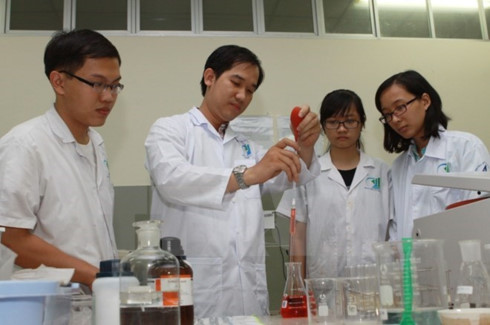



Tran Cong Phong,
Director of the Vietnam Institute of Educational Sciences, said tertiary
education in Vietnam has developed strongly, contributing to manpower training
in recent years.
University ranking and governance have become a top concern of the local
tertiary education sector. Many schools have actively self-assessed and engaged
in quality certification on regional and global levels, he noted.
Australian Ambassador to Vietnam Crag Chittick said his country has 41
universities and 130 higher education establishments, seven of which are among
the world’s best 100 universities while most of the others are in the top 500,
according to some lists.
He attributed Australian universities’ success to cooperation and competition,
elaborating that they grant scholarships to talented students and sponsor
studies to promote their image and build their brand. Meanwhile, competition
fuels their efforts to reach higher positions in global rankings.
Joanna Wood, Education Counsellor of the Australian Embassy, said her country’s
tertiary education sector is assessed as one of the best in the world thanks to
graduates’ performance. The rate of graduates finding full-time jobs within
four months after graduation rose from 70 percent in 2013 to 88 percent in
2016. About 37.1 percent of Australian people aged 25-34 have a bachelors
degree or above.
She added the success of Australia’s tertiary education sector is based on
quality proven by global standards.
Sharing the country’s experience in organising and managing universities, John
Molony, Executive Director of Deakin International at Deakin University, there
no Vietnamese universities were listed in global rankings like the Academic
Ranking of World Universities (ARWU), QS and Times Higher Education (THE). Only
some of them are named in the QS rankings for Asia.
To enter global rankings, Vietnamese schools should pay more attention to the
reputation of their specialised staff, the reputation of recruiters of their
graduates, the rate of students per faculty, the citation index of each
faculty, faculties’ internationalisation, and the rate of foreign students.
They should ensure recognition of the universities among domestic and
international specialists while improving their research capacity and the
quality of scientific articles and reports, Molony added.